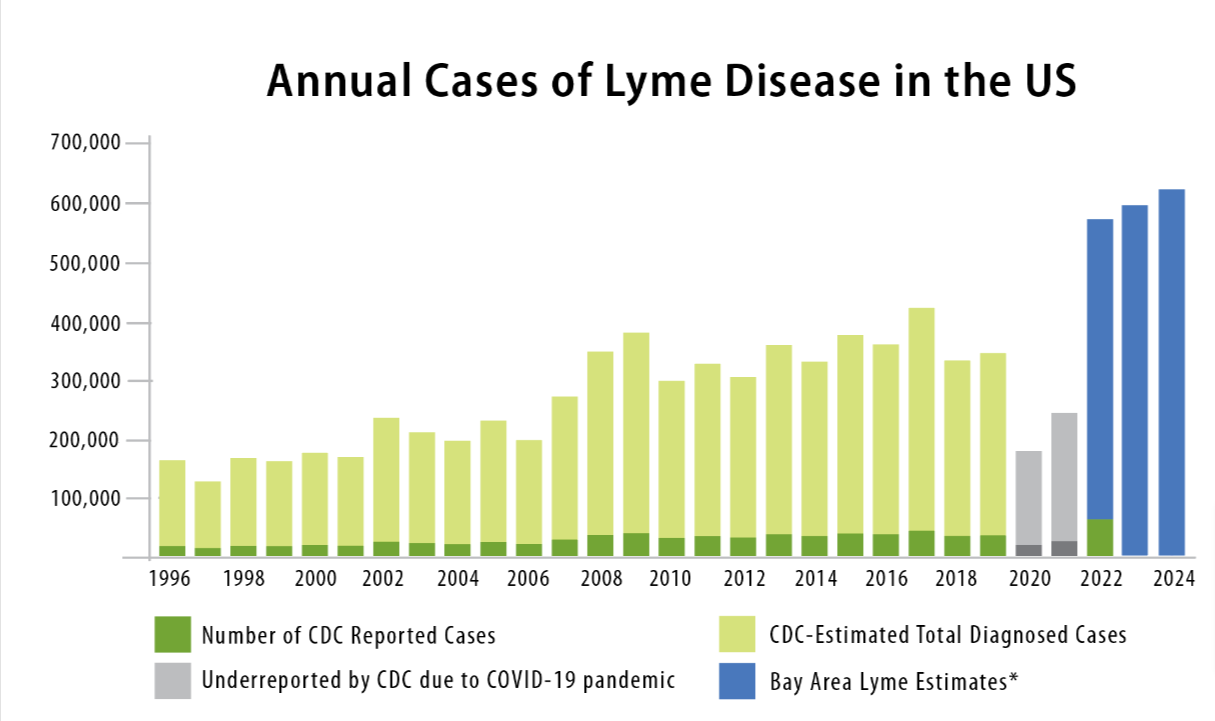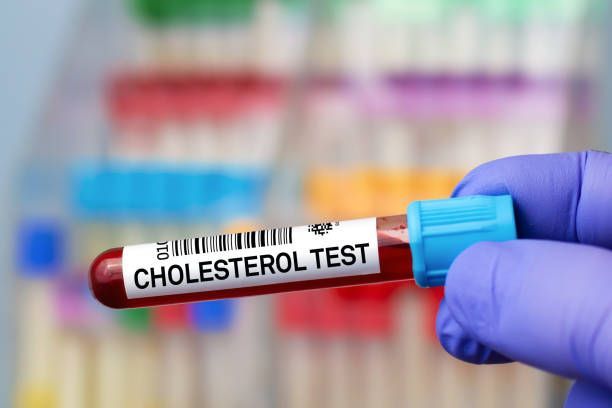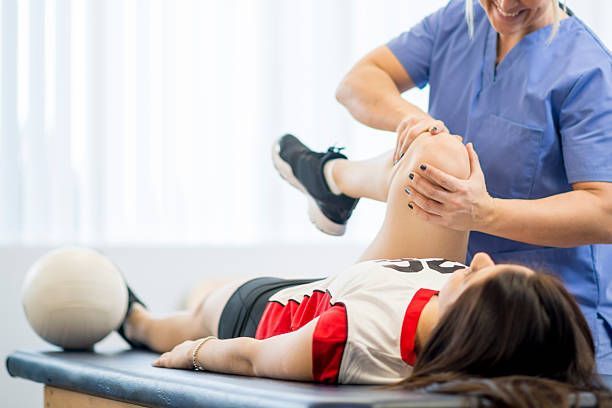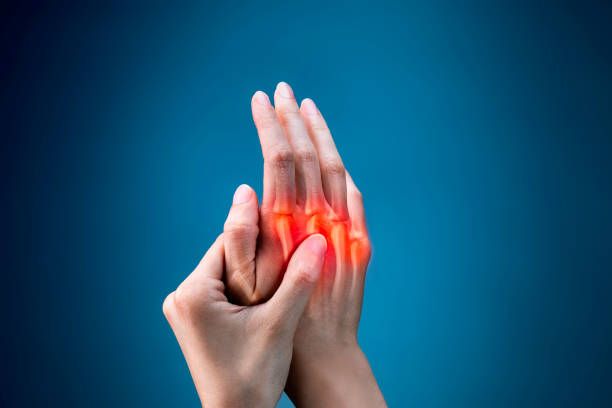Recognize the Symptoms Early Tick Bites and Lyme Disease
When it comes to spending time outdoors, especially in grassy or wooded areas, tick bites are more than just an annoyance—they can lead to serious health issues, including Lyme disease.
Whether you're enjoying a hike or letting your dog roam free in the yard, understanding the risks of tick bites and Lyme disease is essential. But what exactly is Lyme disease?
In this blog, we’ll dive into the connection between tick bites and Lyme disease. The symptoms to look out for and
what to do if you suspect you have been bitten by an infected tick.
What is Lyme Disease?
Lyme disease is a bacterial infection transmitted by the bite of an infected black-legged tick, also known as a deer tick. The disease is caused by Borrelia burgdorferi, a type of bacteria that enters the body when the tick bites and stays attached for 36 to 48 hours or longer. This is why prompt tick removal is crucial in preventing Lyme disease.
Lyme disease is most common in the northeastern, mid-Atlantic, and upper midwestern regions of the United States. But cases have been reported across the country. It can affect both humans and animals, with dogs being particularly vulnerable to the disease after a tick bite.
Based on the average annual rate of increase,
Bay Area Lyme estimates that there were 572,543 actual cases of Lyme disease in 2022. The foundation anticipates that the number will rise to approximately 627,927 cases in 2024.

How Do Tick Bites Lead to Lyme Disease?
Ticks are tiny arachnids that feed on the blood of mammals, birds, and even reptiles.
When a tick bites, it anchors itself to the skin and slowly feeds on blood for several days. If the tick is infected with Borrelia burgdorferi, the bacteria can transfer to its host during feeding, leading to Lyme disease.
One of the challenges in diagnosing Lyme disease is that tick bites often go unnoticed. Ticks are small and can attach to hard-to-see areas like the scalp, underarms, or behind the ears. That’s why it’s important to check yourself, your children, and your pets for ticks after spending time outdoors.
Recognizing the Symptoms of Lyme Disease
Recognizing the early symptoms of tick bites and Lyme disease is key to preventing the disease from progressing. The sooner you catch it, the easier it is to treat.
Here are some common early signs of Lyme disease:
1. Erythema Migrans (Bullseye Rash)
The most well-known sign of Lyme disease is the bullseye rash, called erythema migrans. This rash typically appears at the site of the tick bite within 3 to 30 days of being bitten. It usually starts as a small red spot and gradually expands outward, often developing a central clearing that gives it a bullseye appearance.
While this rash is a telltale sign of Lyme disease, not everyone develops it. In fact, up to 30% of people with Lyme disease may never see a rash, so it’s important to be aware of other symptoms.
2. Flu-like Symptoms

Early Lyme disease can mimic flu symptoms, making it difficult to recognize at first.
These symptoms may include:
- Fever
- Chills
- Headaches
- Fatigue
- Muscle and joint aches
- Swollen lymph nodes
These symptoms can appear soon after the tick bite and may persist or worsen if the disease isn’t treated.
3. Fatigue and Weakness
People with early Lyme disease often experience overwhelming fatigue that doesn’t improve with rest. This fatigue can make it difficult to perform daily tasks and may worsen over time if left untreated.
What to Do If You Find a Tick
If you find a tick on yourself, your child, or your dog, it’s important to remove it as quickly as possible to reduce the risk of infection. Here’s how to safely remove a tick:
- Use fine-tipped tweezers: Grasp the tick as close to the skin’s surface as possible.
- Pull upward: Use steady, even pressure to pull the tick out. Don’t twist or jerk, as this can cause parts of the tick to break off and remain in the skin.
- Clean the bite area: After removing the tick, clean the bite area and your hands with rubbing alcohol or soap and water.
- Dispose of the tick: Place the tick in alcohol, seal it in a bag, or flush it down the toilet. Never crush a tick with your fingers.
It’s a good idea to save the tick in a plastic bag in case you need to have it tested for Lyme disease later.
Diagnosis and Treatment of Lyme Disease
If you suspect that you’ve been bitten by a tick or if you’ve developed symptoms of Lyme disease, it’s important to seek medical attention right away. The earlier Lyme disease is diagnosed, the easier it is to treat.
Diagnosis
Doctors typically diagnose Lyme disease based on your symptoms, history of tick exposure, and physical exam. Blood tests can also confirm the presence of Borrelia burgdorferi bacteria, though these tests are more reliable several weeks after infection has occurred.
Treatment
Most cases of Lyme disease can be successfully treated with a course of antibiotics. The type and duration of antibiotics will depend on the stage of the disease. Early treatment is crucial, as untreated Lyme disease can spread to the joints, heart, and nervous system, leading to more serious complications.
Preventing Tick Bites and Lyme Disease

The best way to avoid Lyme disease is to prevent tick bites in the first place. Here are some tips to protect yourself and your pets from ticks:
- Wear protective clothing: When hiking or spending time in tick-prone areas, wear long sleeves, long pants, and tuck your pants into your socks to keep ticks off your skin.
- Use tick repellent: Apply a tick repellent that contains at least 20% DEET to exposed skin and clothing.
- Check for ticks: After spending time outdoors, thoroughly check yourself, your children, and your pets for ticks. Be sure to examine hidden areas like behind the ears, underarms, and groin.
- Keep your yard tick-free: Keep your lawn mowed, and remove leaf litter and tall grasses where ticks like to hide.
- Use tick prevention on pets: Ask your veterinarian about tick prevention treatments for your dog, such as tick collars or topical medications.
Read this next: Finding Immediate Medical Help: Your Ultimate Guide to Locating the Best Urgent Care Near You
Get The Urgent Care You Deserve
If you’ve been bitten by a tick or are experiencing symptoms of Lyme disease, don’t wait—walk into UrgiClinic Urgent Care for quick and reliable diagnosis and treatment. Our experienced medical team is here to help you get the care you need, whether you’re dealing with a tick bite or suspect Lyme disease. Don’t hesitate to seek acute care—visit UrgiClinic Urgent Care today!













